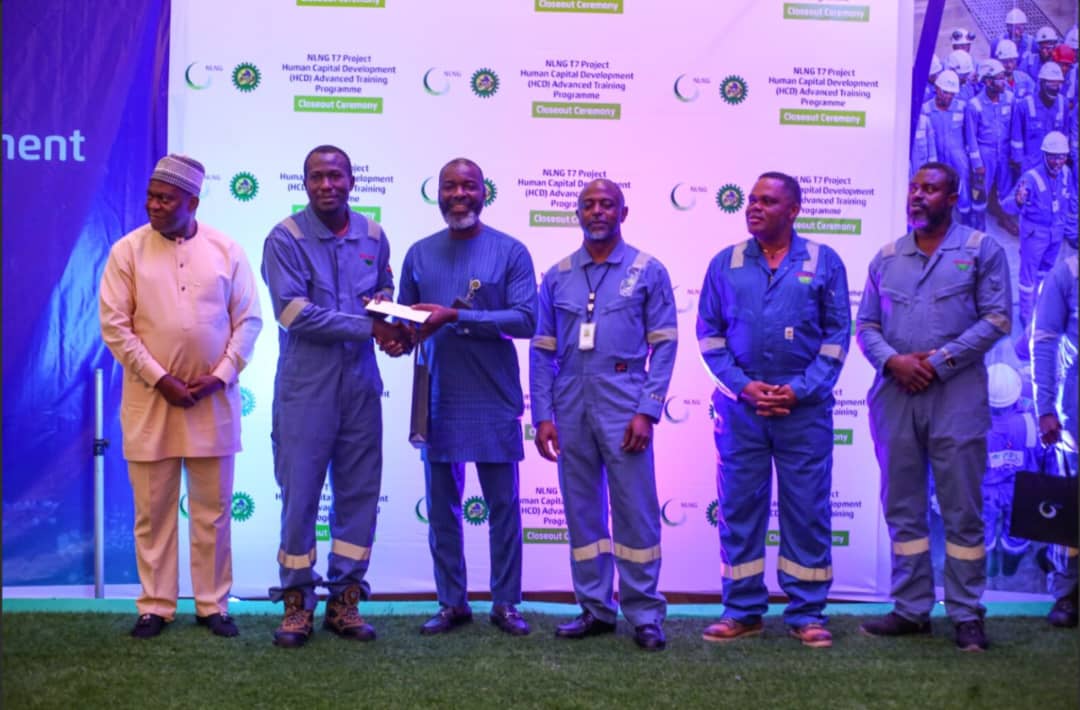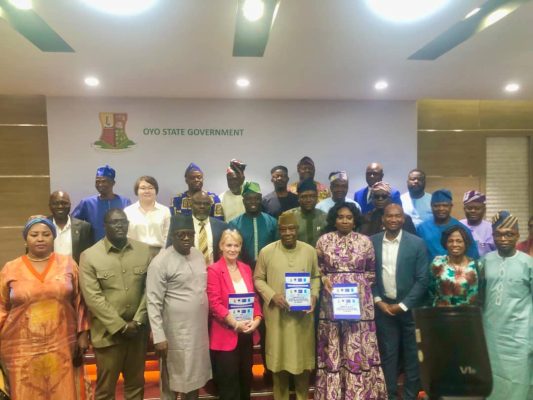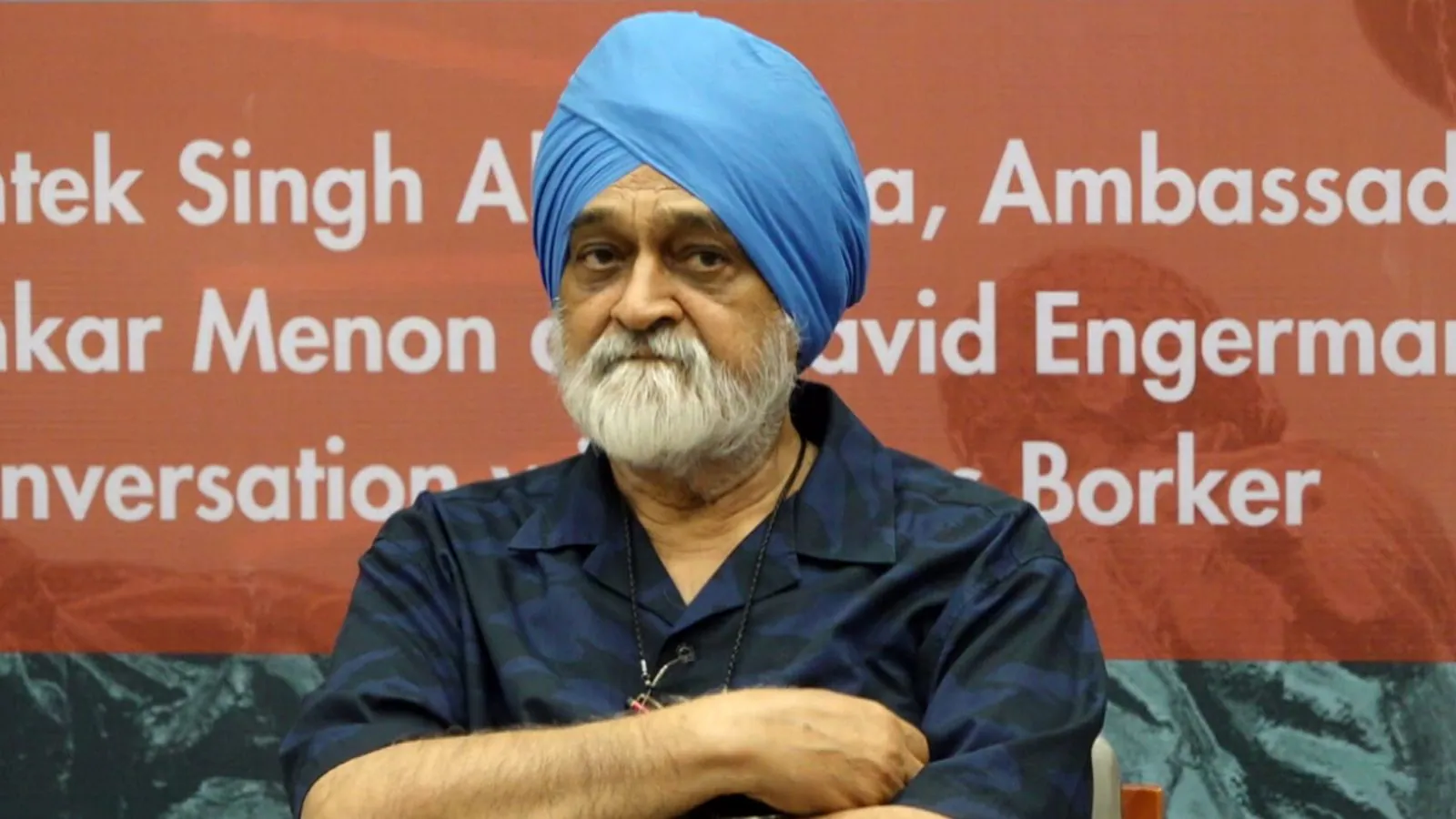By Aos Orwell,Tokunbo2
Copyright thesun

By Damiete Braide
The Nigerian oil and gas industry marked another milestone on Friday as the Nigeria LNG Limited (NLNG), in collaboration with the Nigerian Content Development and Monitoring Board (NCDMB), celebrated the graduation of 122 Nigerians from the Train 7 Human Capital Development (HCD) Advanced Training Programme.
The ceremony, held at NLNG’s plant complex in Finima, Bonny Island, Rivers State, symbolised not only the end of a rigorous three-month programme but also the continuation of a national vision to deepen indigenous participation in the oil and gas sector. The trainees are set to depart the facility officially on Tuesday, September 30, 2025, signalling the close-out of this phase of training.
The Human Capital Development initiative is a cornerstone of the Nigerian Oil and Gas Industry Content Development (NOGICD) Act, championed by the Federal Government and implemented through the NCDMB. It seeks to bridge skills gaps, create employment, and build a competitive indigenous workforce. For this advanced stage, only candidates who had successfully completed prior basic training were approved to participate.
Over 122 graduate and vocational trainees immersed themselves in On-the-Job Training (OJT) across NLNG facilities. The programme sharpened their skills in areas critical to the oil and gas value chain, including plant and facility management, instrumentation, electrical and mechanical engineering, fabrication, lifting and rigging, as well as preventive and corrective maintenance. With such exposure, the graduates are now better positioned to compete globally and contribute meaningfully to Nigeria’s industrial growth.
Speaking at the event, NLNG’s Train 7 Project Director, Engr. Ali Uwais, represented by Engr. Joshua Anemeje, the Train 7 Project Corporate Liaison Manager, praised the dedication and determination displayed by the trainees. He noted that the programme’s success was not only reflected in the technical proficiency gained but also in its remarkable zero-incident safety record.
“This programme is about building a new generation of Nigerian professionals who will shape the oil and gas sector for decades to come,” he remarked. “Its successful completion with a zero-incident safety record reflects not only your dedication but also NLNG’s uncompromising culture of ‘Safety First and Always,’ and its operational excellence.”
Anemeje urged the graduates to leverage the knowledge and experience acquired to seize opportunities in the energy industry, stressing that the oil and gas sector remained a critical driver of Nigeria’s economic future. He also commended NCDMB and the training partners, Candix Engineering Nigeria Limited, AOS Orwell, Arco Marine and Engineering Limited, Dover Engineering, and Amaiden Energy Nigeria Limited, for their role in ensuring the OJT was of world-class standard.
Representing NCDMB, the General Manager of Human Capital Development, Esueme Dan Kikile, Esq., expressed satisfaction with the outcomes of the programme. He described it as a deliberate effort to groom young Nigerians into a skilled workforce that can compete on a global scale.
“This training provided hands-on experience on a live LNG project that complemented your academic and theoretical knowledge,” Kikile said. “It exposed you to specialised technical disciplines, project management, health and safety practices, and emerging technologies that will shape the future of the energy industry.”
Kikile underscored the strategic importance of the Train 7 Project, calling it one of the largest gas infrastructure developments in Africa. Beyond creating jobs, he said, it has offered young Nigerians a platform to acquire advanced technical and managerial competencies, thereby strengthening the country’s human capital base.
One of the highlights of the ceremony was the recognition of outstanding performers. Twenty-seven trainees received special awards for their aptitude and commitment during the programme. Even more significant, six exceptional participants earned automatic employment offers from AOS Orwell, one of the training partners.
Kikile described these achievements as evidence of the programme’s transformative impact, not just on the individuals but also on the industry as a whole. He commended NLNG and its partners for their unwavering commitment to the Nigerian Content agenda and hinted at several other initiatives currently underway between NCDMB and NLNG to deepen local content implementation.
For stakeholders, the graduation is more than just a conclusion; it is a statement of intent. The collaboration between NLNG and NCDMB demonstrates how strategic partnerships between the government and private sector can deliver measurable results in skills development and job creation.
Nigeria’s oil and gas industry has long been a backbone of the economy, but the emphasis on Nigerian Content ensures that the benefits extend beyond resource extraction to human development. By investing in advanced training programmes like Train 7 HCD, companies are not only building capacity for today’s industry needs but also equipping the workforce to tackle the challenges of tomorrow, including energy transition, digitalisation, and sustainability.
The graduates, now equipped with practical experience and advanced knowledge, represent a new wave of Nigerian professionals ready to contribute to the country’s industrial and economic aspirations. Their journey reflects the resilience of Nigeria’s youth and the opportunities available when industry leaders commit to long-term capacity-building.
For NLNG, the training is another chapter in its legacy of contributing to national development, while for NCDMB, it is a validation of the effectiveness of the NOGICD Act in promoting indigenous participation. The training partners, too, leave with the satisfaction of having played a direct role in shaping the careers of the next generation of energy professionals.
As the graduates depart Bonny Island at the end of September, they carry with them not just certificates of completion, but the confidence and competence to make an impact. Their story is a testament to the power of collaboration, the importance of safety and excellence, and the promise of a brighter future for Nigeria’s oil and gas sector.



